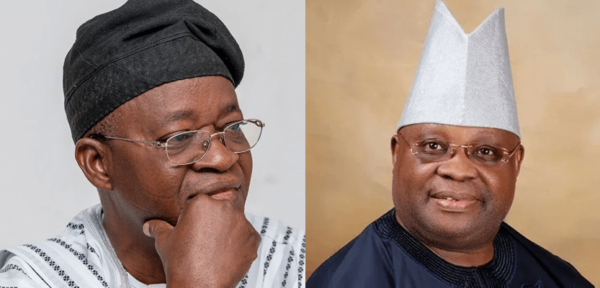Abuja, Nov. 30, 2023: The African Development Bank (AfDB) has revised its short- to medium-term macroeconomic forecast for Africa for 2023 and 2024 downward.
In a statement issued on Wednesday, the Bank revised the forecast to 3.4 and 3.8 per cent from 4.0 per cent and 4.3 per cent, respectively.
According to the statement, the updated data was published in the 2023 Africa’s Macroeconomic Performance and Outlook (MEO) update, a follow-up to the Bank’s 2023 Africa Economic Outlook released in May.
“The slightly lower figures reflect the persistent long-term effects of COVID-19, geopolitical tensions, and conflicts.
“It also reflects the effects of climate shocks, a global economic slowdown, and limited fiscal space for African governments to adequately respond to shocks and sustain post-pandemic economic recovery gains.
“While inflationary pressures are receding globally, they are persistent in Africa and continue to weigh heavily on the continent’s short-to-medium-term economic performance,” it said.
According to the update, Africa’s inflation is projected to average 18.5 per cent and 17.1 per cent in 2023 and 2024, respectively.
In the short term, it said the MEO update urged countries to continue implementing restrictive monetary policies to contain inflation.
It said this should be supported by fiscal policies that promote economic diversification and remove supply-side constraints.
“Over the medium- to long-term, it calls on governments to scale up efficient investment in human capital and physical infrastructure.
“To boost productivity, regain momentum in economic growth, and create opportunities for more inclusive and sustainable development.
“The revised inflation rates represent an acceleration of 3.4 and 7.6 percentage points, respectively, from the earlier projection.
“Ongoing inflationary pressure has largely been fuelled by supply shocks in agriculture, stronger imported inflation due to weaker local currencies, relatively high commodity prices, and the persistence of fiscal dominance in several African countries,” it said.
According to the statement, the elevation of cost-of-living pressures has eroded Africans’ purchasing power, stoking the risk of further increases in the incidence of poverty.
It said: ”Among the update’s findings, slow global economic growth impacts demand for Africa’s exports, a trend projected to persist for much longer than anticipated.
“It also stressed that the projected economic slowdown in advanced economies and lacklustre growth in China relative to historical trends have weighed down global growth.
“This has placed additional strain on African countries, especially those dependent on the Chinese market for commodity exports.”
The statement explained that more robust policy support in China could bolster global economic recovery and trigger positive spillovers to African countries for which China remains a major trading partner.
It said these factors could help moderate adverse risks to the economic outlook.
On the downside, the 2023 MEO update observed that climate shocks, deepening geopolitical tensions in the Middle East, and Russia’s invasion of Ukraine could lead to more profound disruptions in global trade and foreign investment flows.
“This can trigger another round of prolonged tightening of global financial conditions, further exerting depreciation pressure on domestic currencies.
“It can increase debt-service costs, exacerbate the increase in debt-service costs and compound the continent’s funding squeeze,” it said.
On the way forward, the update suggested that coordinated monetary and fiscal policies underpinned by a reduction in fiscal dominance would rebuild buffers against the shocks.
It said: ”Targeted and sequenced investments to address supply constraints, including structural weaknesses, will help reverse the downturn in the momentum of economic recovery.
“It will put African economies on a higher and more sustainable growth trajectory,” it said.
To sustainably reduce inflationary pressures, the report urged African countries to remove the obstacles preventing domestic supply from responding to higher international commodity prices.
It urged the countries to boost labour productivity through targeted infrastructure and human capital investment.
It further said that tackling impediments to increased domestic resource mobilisation would help address the current funding squeeze.
Meanwhile, Prof. Kevin Urama, AfDB’s Chief Economist and Vice President, said the challenging global economic environment and multiple shocks shaped Africa’s macroeconomic performance.
Urama said the entrenched inflationary pressures threatened to reverse all the macroeconomic gains since the pandemic risks were easing.
He said the continued depreciation of domestic currencies in many countries had also exacerbated debt service costs.
“In the face of regional and global shocks, the Bank remains resolute in supporting African countries to navigate these challenges better and put economic growth back on track,” he added.
Inaugurated in January 2023, Africa’s Macroeconomic Performance and Outlook report complements the AfDB’s annual African Economic Outlook report, which focuses on key emerging policy issues relevant to the continent’s development.
The MEO is published in the first and fourth quarters of each year.
The update comes ahead of the 2024 edition of the MEO, highlighting the evolution of macroeconomic conditions in the face of multiple and unprecedented shocks.














